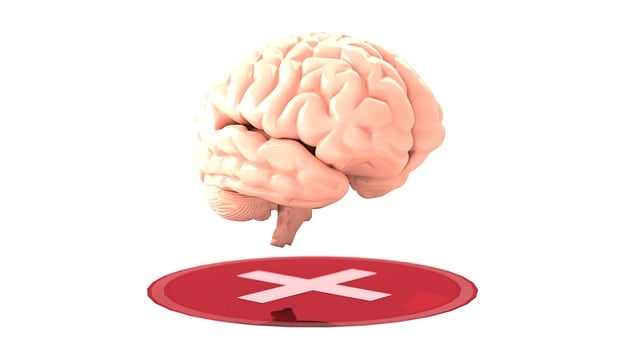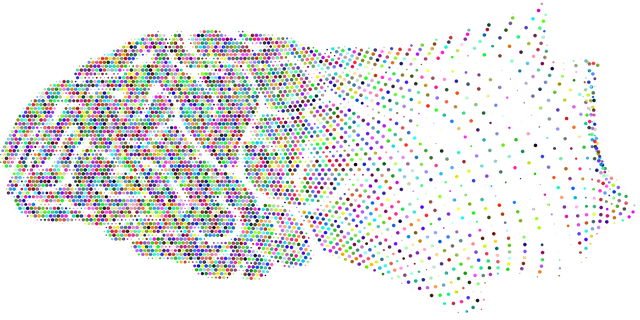Cultural competency in healthcare is crucial for meeting the unique needs of young adults dealing with workplace issues and job stress, emphasizing recognizing and respecting diverse cultural backgrounds, beliefs, and practices. A culturally sensitive approach enhances trust, reduces stigma around mental illness, and aids in tailoring interventions. Effective training equips professionals with tools to deliver inclusive mental health services, bridge communication gaps, and address specific challenges like work-life balance and intergenerational differences. By incorporating empathy-building strategies and burnout prevention practices, therapists can navigate sensitive topics and improve overall well-being for young adults seeking therapy, focusing on anxiety relief techniques, risk management planning, and crisis intervention guidance tailored to diverse populations.
Cultural competency training is an essential aspect of modern healthcare, especially when addressing the unique needs of young adults. This comprehensive guide explores the critical role of cultural sensitivity in medical settings. We delve into strategies to identify and overcome workplace biases, enhance communication with diverse patients, and incorporate cultural awareness into therapy sessions for improved outcomes. Furthermore, we discuss job stress relief techniques, acknowledging the impact of multicultural environments on mental health, particularly among young adults navigating therapy and workplace issues.
- Understanding Cultural Competency in Healthcare: Why It Matters for Young Adults
- Identifying and Overcoming Workplace Biases and Stereotypes
- Strategies for Effective Communication with Diverse Patient Populations
- Incorporating Cultural Sensitivity into Therapy Sessions for Better Outcomes
- Job Stress Relief Techniques: Supporting Mental Health in a Multicultural Environment
Understanding Cultural Competency in Healthcare: Why It Matters for Young Adults

Understanding cultural competency in healthcare is paramount when addressing the unique needs of young adults. This concept goes beyond mere diversity and inclusion; it involves recognizing and appreciating the diverse cultural backgrounds, beliefs, and practices that shape individuals’ health perspectives and behaviors. For young adults navigating therapy for workplace issues and job stress, a culturally sensitive approach can significantly impact their willingness to seek help and the effectiveness of interventions.
Cultural sensitivity in mental healthcare practice is crucial in reducing the stigma associated with mental illness, especially among younger populations. By understanding cultural norms and values, healthcare providers can tailor their communication and treatment strategies, fostering trust and open dialogue. This is essential for addressing workplace issues and job stress, where young adults may face specific challenges related to work-life balance, career expectations, or intergenerational differences in the workplace. Effective cultural competency training equips professionals with the skills to manage stress, promote resilience, and provide inclusive mental health support tailored to diverse populations.
Identifying and Overcoming Workplace Biases and Stereotypes

In healthcare settings, biases and stereotypes can significantly impact patient care, especially when serving diverse young adult populations facing various workplace issues and job stress. These unconscious preconceptions can lead to miscommunication and inappropriate treatment approaches. For instance, a healthcare provider might unintentionally project their own cultural lenses onto a patient from a different background, assuming certain behaviors or needs without understanding the individual’s unique context. Overcoming these biases requires a conscious effort to recognize and challenge them.
Training programs should incorporate strategies like mindfulness meditation and empathy-building exercises to help professionals navigate these complexities. Encouraging self-care routine development for better mental health can also foster an environment where healthcare providers are more attuned to their own biases. By acknowledging and addressing these workplace issues, training initiatives can empower medical staff to deliver culturally competent care tailored to the diverse needs of young adults seeking therapy.
Strategies for Effective Communication with Diverse Patient Populations

Effective communication with diverse patient populations is a cornerstone of cultural competency training for healthcare providers. To bridge gaps in understanding and build trust, professionals should adopt strategies that cater to various linguistic, cultural, and educational backgrounds. This includes offering translation services, using culturally sensitive language, and incorporating visual aids or simple, clear instructions to ensure comprehension. Tailoring communication styles to individual patients fosters a safe, welcoming environment, encouraging honest discussions about sensitive topics like mental health and work-related stress.
For young adults navigating therapy, cultural competency training equips therapists with tools to address workplace issues and job stress specific to diverse populations. By understanding the unique challenges faced by their patients—be it acculturation, discrimination, or language barriers—therapists can employ tailored Stress Reduction Methods and offer Trauma Support Services that resonate with individual experiences. Moreover, public awareness campaigns development focused on these topics can enhance community engagement, promoting open conversations about mental health and work-life balance across diverse communities.
Incorporating Cultural Sensitivity into Therapy Sessions for Better Outcomes

Incorporating cultural sensitivity into therapy sessions is a critical component of achieving better outcomes for young adults facing various challenges, including workplace issues and job stress. Therapists must be equipped to understand and respect diverse backgrounds, beliefs, and values. This approach fosters an inclusive environment that encourages open communication and builds trust with clients from different ethnic, racial, and cultural groups. By incorporating empathy building strategies, conflict resolution techniques, and burnout prevention practices, therapists can better navigate sensitive topics and address unique workplace issues faced by their young adult clients.
Cultural competency training equips professionals with the tools to recognize and appreciate the impact of systemic barriers, unconscious biases, and microaggressions on mental health. Through these lessons, therapists learn effective communication methods that promote active listening, clear explanations, and tailored interventions. By integrating these skills into therapy sessions, professionals can enhance their ability to support clients in managing stress related to work and personal life, thereby fostering resilience and improving overall well-being.
Job Stress Relief Techniques: Supporting Mental Health in a Multicultural Environment

In a multicultural healthcare setting, mental health support is essential to addressing job stress among providers. Young adults, in particular, face unique challenges that require tailored therapy and crisis intervention strategies. Integrating anxiety relief techniques into routine training can equip professionals with tools to manage workplace issues effectively. By learning these skills, healthcare providers become better equipped to handle the emotional demands of their roles.
Risk management planning for mental health professionals is crucial. Incorporating stress-reduction practices into daily routines can prevent burnout and improve overall well-being. Crisis intervention guidance tailored to diverse populations ensures that every patient receives culturally sensitive care. This holistic approach not only benefits individual practitioners but also enhances the quality of healthcare services delivered in a multicultural environment.
Healthcare provider cultural competency training is a vital tool for addressing workplace biases, enhancing communication with diverse patients, and improving therapy outcomes. By incorporating strategies that foster cultural sensitivity, professionals can better navigate the complex landscape of multicultural environments, ultimately providing more effective care, especially for young adults facing unique challenges in their communities. This holistic approach to healthcare ensures that everyone receives respectful, sensitive, and competent treatment, promoting better mental health outcomes and reducing job stress among providers.














